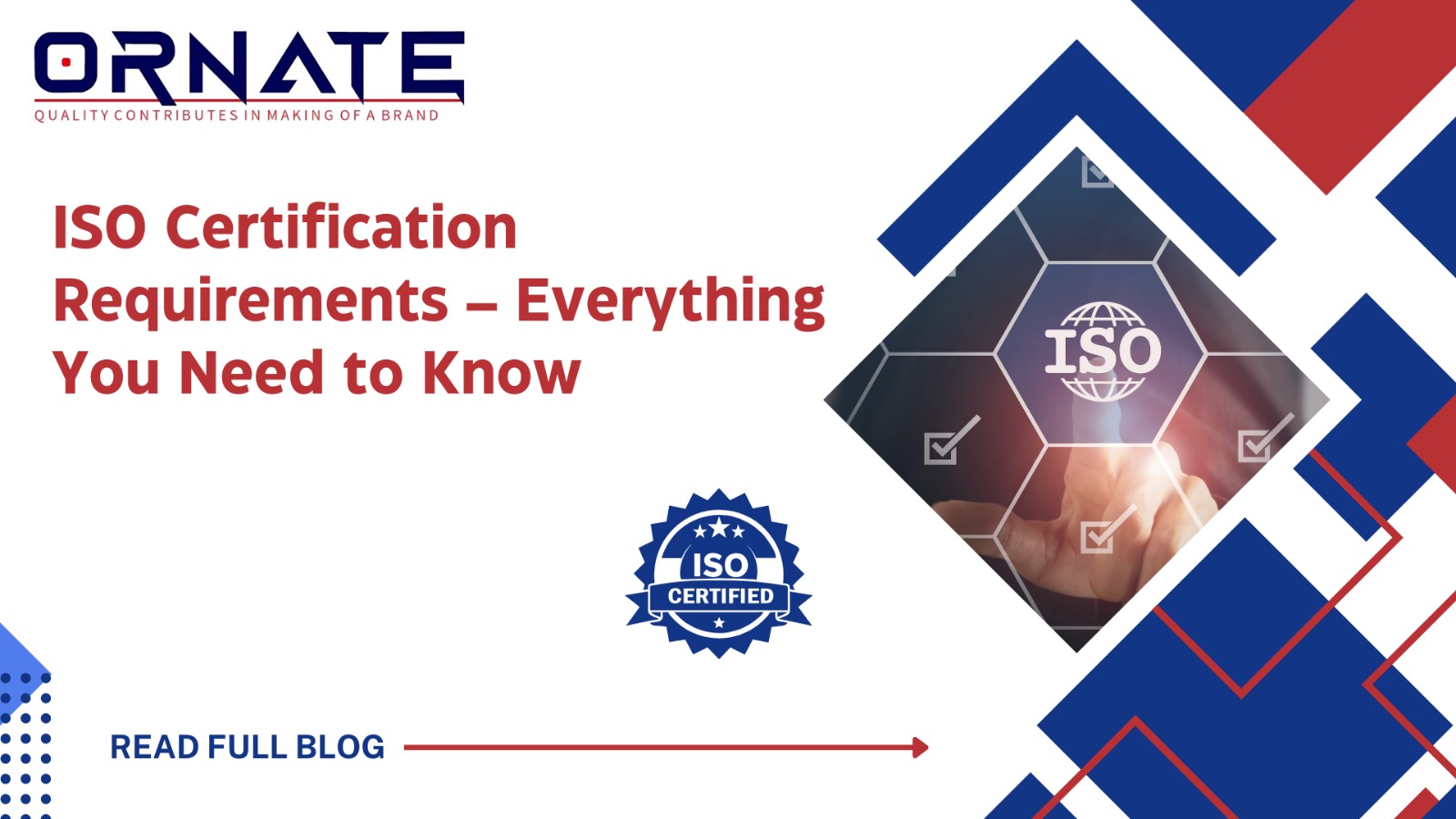In today’s hyper-competitive marketplace, ISO certification isn’t just a badge—it’s a powerful signal of quality, safety, and credibility. Let’s break down what ISO certification requires, how it works, and why it matters more than ever.
Global Outlook: The Growing Demand
-
The global ISO certification market was valued at US$ 16.14 billion in 2024, with projections reaching US$ 66.25 billion by 2034, reflecting a remarkable CAGR of 15.2% according to FactMR.
-
Regionally, the Asia Pacific shows exceptional momentum—with India’s share alone at US $ 283.1 million in 2024 and a projected CAGR of 18.8%, highlighting the urgency for Indian businesses to get certified.
What Does ISO Certification Entail?
-
Choose the Right Standard
Select a standard that aligns with your business needs: -
Identify Accreditation Requirements
In India, the Bureau of Indian Standards (BIS) formulates national standards harmonized with ISO and oversees product and scheme compliance Wikipedia.
-
Document Gaps & Prepare
Perform gap analysis to benchmark your current processes against ISO requirements. Develop documentation, policies, and corrective actions where needed.
-
Conduct an Internal AUDIT
Before external assessment, run internal audits to test the system, record non-conformities, and implement fixes.
-
External Certification Audit
An accredited body evaluates your systems over two stages—papers first, then on-site execution. Once compliant, you receive certification.
-
Maintain with Surveillance & Renewal
Certificates typically remain valid for three years, but annual surveillance audits are mandatory to ensure ongoing compliance.
Real-World Examples: ISO Certification in Action
-
In Uttar Pradesh, three cattle shelters in Varanasi recently earned ISO 9001:2015, elevating standards in care, hygiene, and infrastructure The Times of India.
-
Delhi Police’s Fingerprint Bureau also achieved ISO 9001:2015, strengthening credibility in forensic evidence handling after solving hundreds of cases over recent years, The Times of India.
Why the Rising Interest in ISO?
-
Customer Trust & Market Access
ISO certification often opens doors to premium contracts and global trade opportunities.
-
Operational Excellence
It fosters structured processes, quality control, risk mitigation, and continuous improvement.
-
Regulatory & Tender Eligibility
Many government, PSU, and B2B procurement frameworks now require ISO compliance as a pre-qualification.
Final Takeaway
ISO Certification is no longer optional—it’s a strategic necessity. From securing trust and improving systems to unlocking international growth, ISO opens doors. The process is detailed and structured, but with careful planning, internal buy-in, and proper audit support, certification is absolutely within reach.
For Indian businesses looking to stay relevant, compliant, and growth-oriented, ISO certification is the gold standard. If you’d like a tailored implementation roadmap next, I can craft one specifically for your sector.

